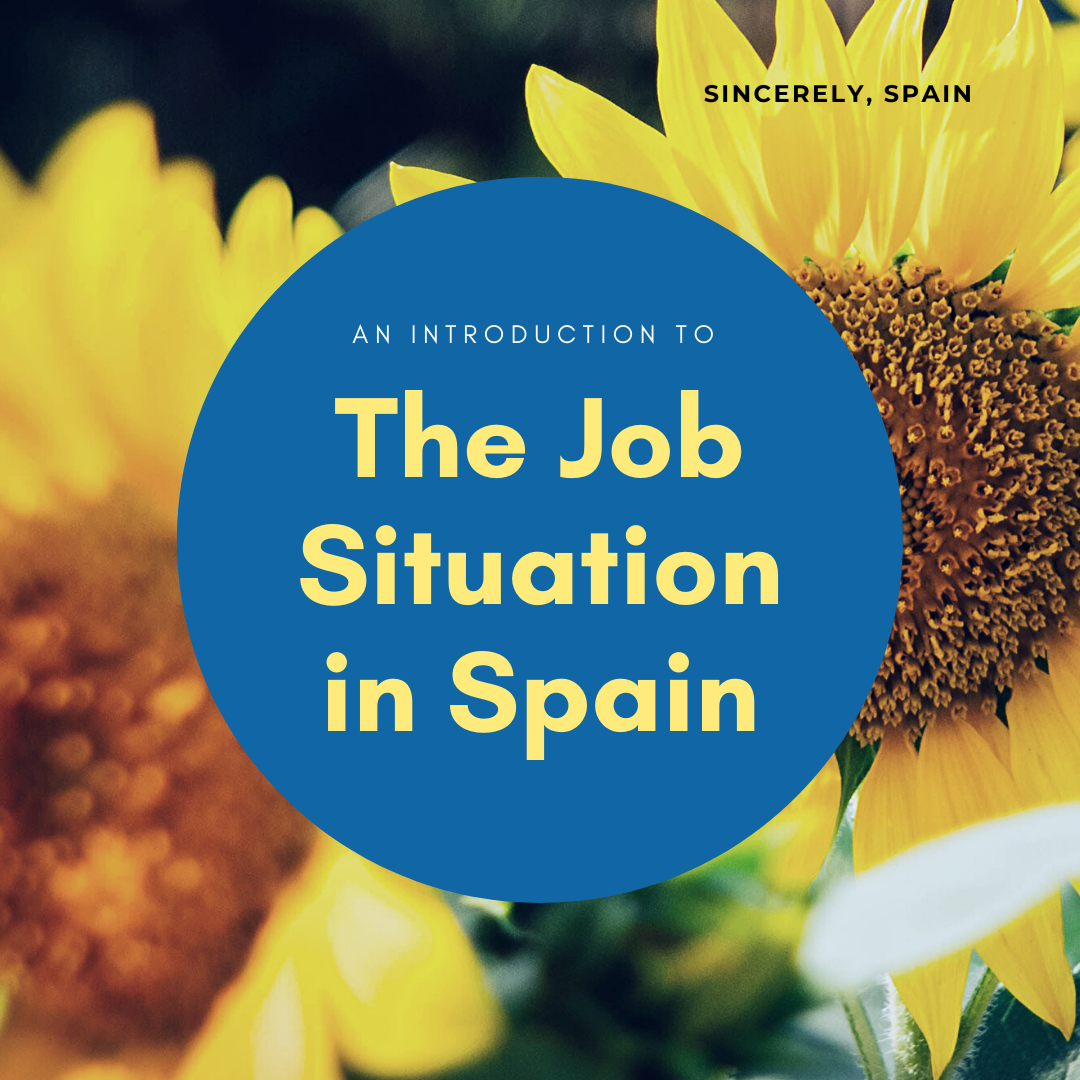
An Introduction to the Job Situation in Spain
Dear Tamara,
When you are planning on coming to Spain or when you first arrive, you might be wondering about the possibility of finding a job while you are abroad. However, you’ve probably also heard that the economic situation here hasn’t been great since the crisis. While you are looking for potential labor options, it might be useful for you to keep the following five things in mind in order to understand current situation:
 1.) The crisis hit Spain hard:
1.) The crisis hit Spain hard:
We know that many places lived the 2008 crisis hard and that the recovery has been slow. However, in Spain this situation has been exceptionally difficult because the industry that was thriving before the economic crash (such as construction and other jobs that don’t necessarily require high academic achievement) was not only put on hold, but in some cases has almost ceased to exist. This means that a lot of people have had to redefine themselves professionally, something that is not easy, especially for the older generations and those people who haven’t finished high school.
This also means that a lot of people who once worked in relatively good jobs have had to fall back on to options that don’t really fit them and might not even pay the bills (but something is better than nothing, right?). And, despite the large quantity of highly educated people that are graduating Spanish universities yearly, the economy has never really recovered.
2.) New graduates don’t have that many options
While some students are able to find their dream opportunities without much hassle, this is not a luxury most recent graduates have. Instead, many of those students leaving school have to choose between three different options:
-
Studying for oppositions: The way people are chosen for public jobs (funcionarios) is by studying for exams called oposiciones. People can spend years preparing for these exams—for jobs such as postmen or teachers or administrative roles—spending money on special academies or teachers to help them pass. At the same time, however, in order to be able to continue studying, many students also depend on their parents for money or, minimally, housing.
-
Choosing a job that is below their education level: Jobs such as waitressing or other jobs in hospitality have become extremely popular for graduates while they look for a job that fits what they have studied. As you can imagine, this is exceptionally difficult for those people who wish to continue with their planned careers and find that it is not an option for them where they are located and, if they don’t want to leave, don’t see other alternatives.
-
Work abroad: There are many professionals that go abroad before studying for the oppositions or working in a job that doesn’t interest them. Especially in fields such as nursing or IT, young professionals can often find options in other countries that far outrank those available in Spain. This one means that educated, motivated Spanish-educated youth (or not so young people) are leaving the country in what could be considered a brain-drain.
If none of the previous options fit the graduate, he or she might find him- or herself without work and depending on family or the government to survive. No matter the reason, this does not promote growth with the economy and leads to frustration within the population.
 3.) There is no youth job culture:
3.) There is no youth job culture:
One thing that shocks young people coming here from abroad (this one is especially true for us from the U.S.)is that we see students who don’t work while they make their way through their studies. The need to work while studying means that students learn responsibility in work-life but also about themselves within the workplace, helping them understand what they like and don’t like. Coming from a culture that promotes getting a first job at 16, this reality can be hard to understand.
At the same time, from a historical perspective, this does make sense. Many parents suffered the effects of Franco’s rule in Spain and, therefore, want to make sure that their children’s life has more opportunities than theirs did. This means many young people are going to university (something that many people one generation older were not able to do here) and enjoy the possibilities that life sends their way. However, this also means that many young people don’t understand what it means to have a (simple) job when they are still growing and get thrown into the workplace with little experience.
4.) The situation is different in different Autonomous Communities:
Although we tend to talk about things at a country-wide level, it is important to note that in Spain some regions have more job opportunities than others. In addition, cities will often have much better opportunities than rural areas. This means that if you decide to move to the Bilbao or Barcelona you might have better luck in finding what you are looking for than if you move to Andalucia. However, you should also keep in mind that the amount you earn (and need to live) can vary greatly from place to place. Many times living in pueblos you will make a fraction of what you would in a city but you don’t need nearly as much to have a good life.
 5.) There are always options:
5.) There are always options:
If you really want to come to Spain and you don’t mind working in hospitality or teaching English, you will almost always be able to find something. Keep in mind that it might not be your dream job or you might not be able to live your dream life on the salary you are earning, but if your main goal is to live in Spain, this is totally possible. In addition, if you are currently able to work online, potentially, you can work from anywhere around the world, including Spain.
What is your experience with the job situation in Spain? Let us know if you have any more questions or comments!
Sincerely,
Spain




